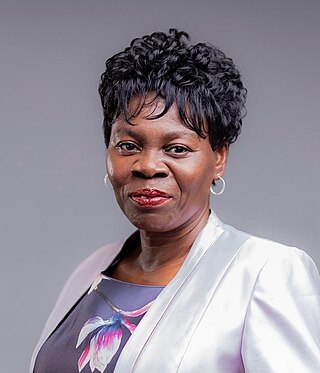Selected publications [1]
In academic journals
- Hearsay Ethnography: Conversational Journals as a Method for Studying Culture in Action." 2009. Poetics 37 (2):162-184 (with Ann Swidler.
- Making Meaning in the Time of AIDS: Longitudinal Narratives from the Malawi Journals Project. 2015. African Journal of AIDS Research 14 (4): 303-314 (with A.Kaler & N. Angotti).
- Narratives of Death in Rural Malawi in a Time of AIDS. 2015. Africa 85 (2): 245-268 (with A. Ashforth).
- Asking God About the Date You Will Die: HIV Testing as a Zone of Uncertainty in Rural Malawi. 2010. Demographic Research, [Online] 23 (32): 905-932 (with A.Kaler). PMC 3090147.
- Navigating the AIDS Epidemic in Rural Malawi. 2004. Population and Development Review 30(4): 673-705.
- Accuracy, Stability and Reciprocity in Informal Conversational Networks in Rural Kenya. 2000, Social Networks 22: 337-355 (with K. White).
- Practices of Deliberation in Rural Malawi 2015. Chapter 7 in Deliberation and Development: Rethinking the Role of Voice and Collective Action in Unequal Societies, eds. Patrick Heller & Vijayenda Rao. Washington, D.C.: World Bank Group (with A.Swidler).
- Popular Moralities and Institutional Rationalities in Malawi’s Struggle Against AIDS 2014. Population and Development Review 40 (3): 447-473 (with N. Angotti, M. Frye, A. Kaler, M. Poulin, & S.Yeatman). PMC 4751039.
- The Buzz Outside the Clinics: Conversation and Contraception in Nyanza Province, Kenya 1997. Studies in Family Planning 28(4): 290-307 (with N. Rutenberg).
- Cohort Profile: The Malawi Longitudinal Study of Families and Health.” 2015. International Journal of Epidemiology 44 (2): 394-404 (with HP Koher, JR Behrman, P.Anglewicz, IV Kohler, RL Thornton, J. Mkandawire, H.Honde, A. Hawara, B. Chilima, C. Bandawe, V. Mwapasa).
- Social Networks and HIV/AIDS Risk Perceptions 2007. Demography 44(1):1-33 (with H.P. Kohler & J.R. Behrman).
- Sex in Geneva, Sex in Lilongwe, Sex in Balaka. 2007. Social Science & Medicine 64(5):1090-1101 (with L.Tawfik).
- Social Interactions and HIV/AIDS in Rural Malawi (Ed). 2003. Demographic Research [Online] 9 (12): 285-296 (with E.Zulu, H-P Kohler & J.Behrman).
- The Social and the Sexual: Networks in Contemporary Demographic Research. 2015. In Population in the Human Sciences: Concepts, Models, Evidence, eds P. Kreager, C. Capalli, S., Ulijazek, S., Winney, B. Oxford, UK: Oxford University Press. (with HP Kohler, S. Helleringer & J. Behrman) See also: http://repository.upenn.edu/psc_working_papers/41/.
- Developmental Idealism and Cultural Models of the Family in Malawi. 2014. Population Research and Policy Review 33 (5): 693-716 (with A. Thornton). PMC 4153731.
- Outsourcing Social Transformation: Development NGOs as Organizations. 2012. Annual Review of Sociology 38: 285-315) (with A. Swidler & T. Hannan).
- Working Misunderstandings: Donors, Brokers and Villagers in Africa’s AIDS Industry. 2012. Population and Development Review 38 (Supp):197-218 (with A.Swidler).
- Men with Money and the 'Vulnerable Women' Client Category in an AIDS Epidemic. 2016. World Development 85: 16–30. (with M. Poulin & K. Dovel)
- Mixed-Method Quasi-Experimental Study of Outcomes of a Large-Scale Multilevel Economic and Food Security Intervention on HIV Vulnerability in Rural Malawi 2017. AIDS and Behavior (with L.S. Weinhardt, L.W. Galvao, A.F Yan, P.E Stevens, T. E. Mwenyekonde, E. Ngui, L. Emer, K.M. Grande, L. Mkandawire-Valhmu).
- Methods and Protocol of a Mixed Method Quasi-Experiment to Evaluate the Effects of a Structural Economic and Food Security Intervention on HIV Vulnerability in Rural Malawi: The Sage4health Study. 2014. SpringerPlus 3:296 (with L.S. Weinhardt, L.W. Galvao, T. Mwenyekonde, K.M. Grande, P. Stevens, A.F. Yan, L. Mkandawire-Valhmu, W. Masanjala, J. Kibicho, E. Ngui, L. Emer). PMC 4082534.
- Keeping the Family in Family Planning. 2014. The Lancet Global Health 2 (7): e383 (with J. Trinitapoli, J. Verheijen & S. Yeatman). PMC 4391622.
- The Changing Role of Health-Oriented International Organizations and Nongovernmental Organizations. 2016. The International Journal of Health Planning and Management 31 (4): 488-510 (with K. Okma, A. Kay, S. Hockenberry,& J. Liu)
- Correspondence: “Men’s heightened risk of AIDS-related death: The legacy of gendered HIV testing & treatment strategies.” 2015. AIDS 29: 1123-1125 (with K.Dovel, S.Yeatman & M.Poulin). PMC 4454403. Response to Fleming & Dworkin: “Prioritizing Strategies to Reduce AIDS-Related Mortality for Men in Sub-Saharan Africa: Authors' Reply”: authors’ reply to Fleming & Dworkin. AIDS 2016, 30 (1): 158–159.
- Accurate Information as a Tool to Decrease HIV Test Refusals in Research Studies. 2015. Editorial, Bulletin of the World Health Organization 93 (5): 357-358 (with P. Anglewicz, N.Angotti, A.Kaler & A.Swidler). PMC 4431511.
Books published
A Fraught Embrace: The Romance and Reality of AIDS Altruism in Africa. 2017. Princeton University Press (with A. Swidler).
From Provinces Into Nations: The Demographic Integration of Western Europe, 1870-1960. 1991. Princeton, NJ. Princeton University Press.
The Decline of Fertility in Europe. Editor. 1986. Princeton, N.J.: Princeton University Press (with Ansley J. Coale).






